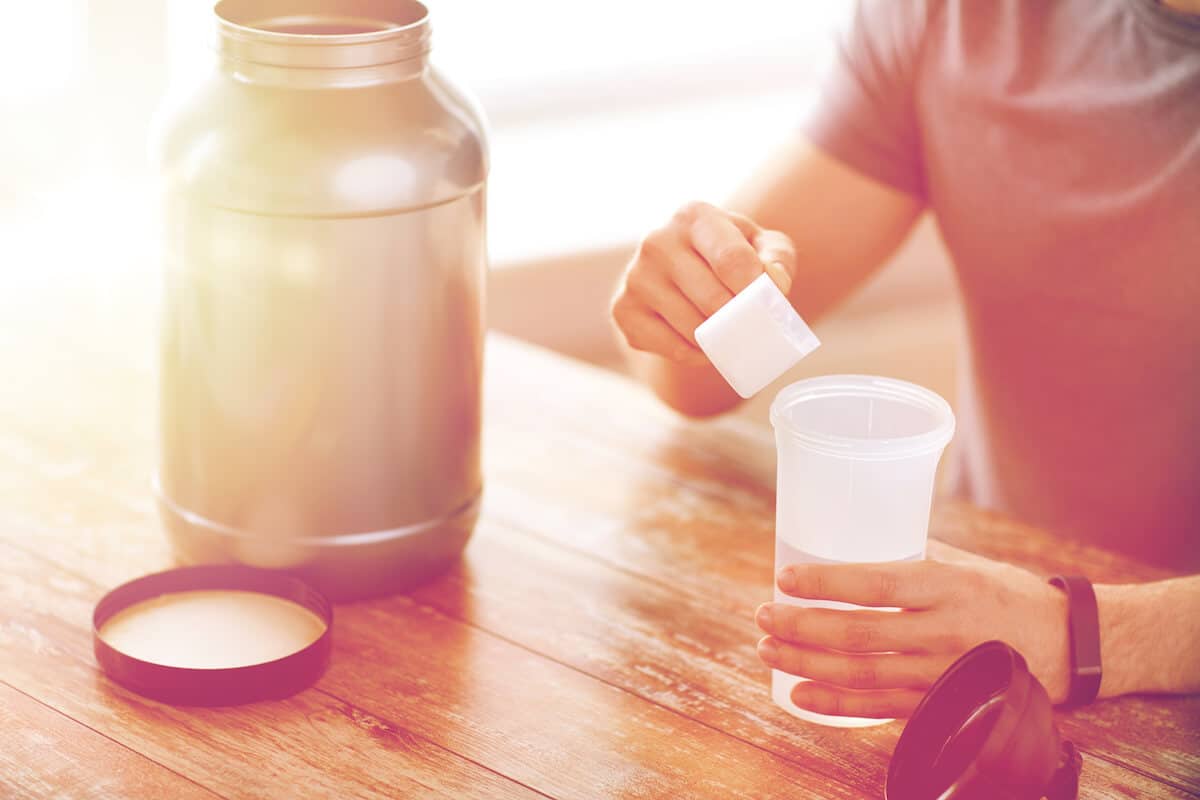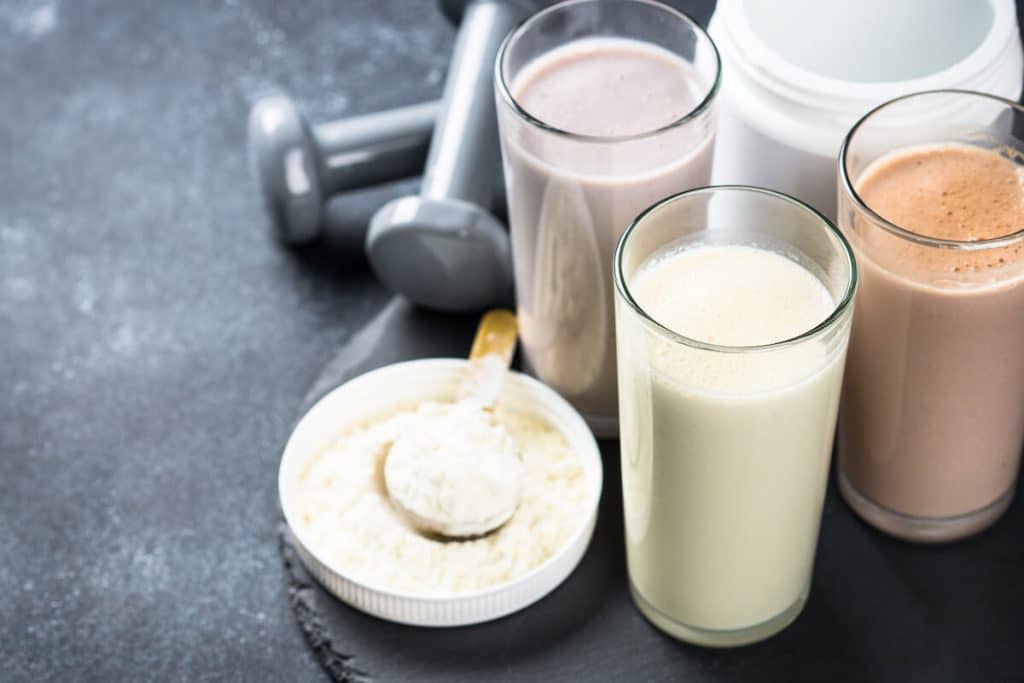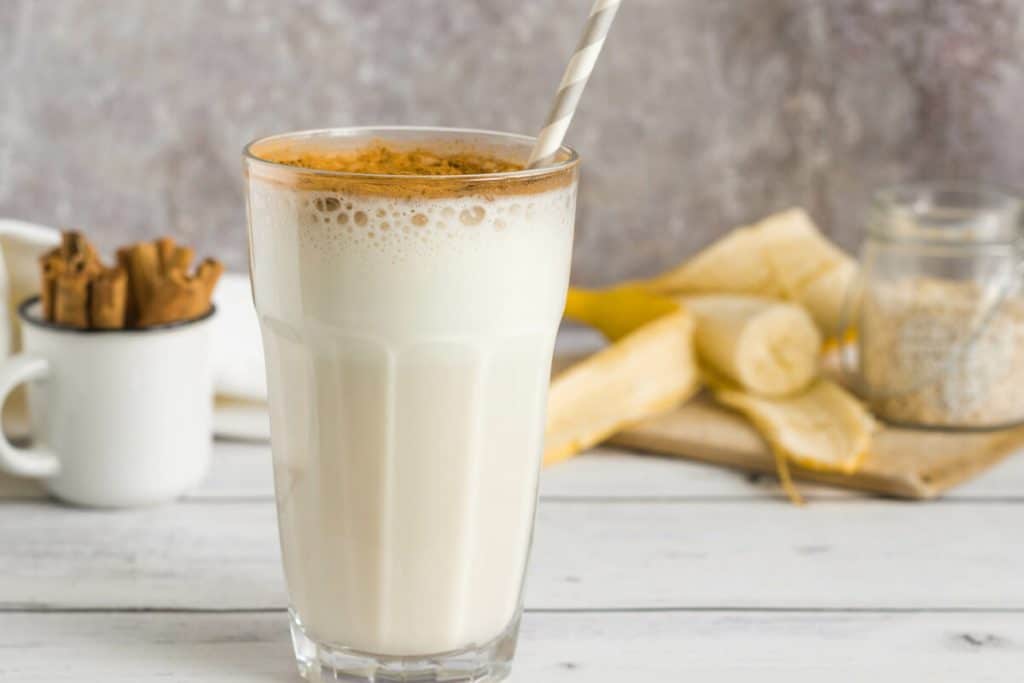
11 May Is Pea Protein Good for You? Health Benefits and More
Pea protein powder is increasing in popularity as a source of quality protein for plant-based diets, and many vegan protein powders include it as a main ingredient. So whether you’re looking to build muscle mass or optimize your diet for weight loss, pea protein powder is an option if you’d like to avoid animal products. But is pea protein good for you?
The simple answer is yes. High-quality pea protein powder contains complete protein, meaning it has all nine essential amino acids. It’s a viable alternative to casein protein, whey protein, and other animal protein powders.
This guide will explore different types of pea protein powder to help you find the best option for your diet. We’ll also look at the benefits of this protein supplement and how to use it safely.
What Is Pea Protein Powder?
Pea protein powder is a plant protein, which means it’s suitable for vegan and dairy-free diets. Specifically, it’s a protein supplement made by processing yellow split peas (Pisum sativum) to extract pea protein isolate.
Making pea protein powder involves grinding yellow peas into flour after removing their outer shells. Then, a wet filtration process removes the starch and fiber, leaving behind the protein, vitamins, and minerals that make up pea protein isolate.
Pea protein isolate is the same as pea protein powder, and it’s a common ingredient in many plant-based protein shakes. Pea protein isolate is also a common ingredient in baked goods and sports nutrition products like protein bars. It’s particularly popular in products marketed as plant-based.
Is Pea Protein Good For You?

Regardless of fitness level or health goals, protein supplements are a good idea if you want to maintain or need to increase your protein intake. Protein is one of three macronutrients your body needs to survive, with the other two being carbohydrates and fats.
Specifically, your body needs a regular supply of complete proteins, which refers to those that contain all nine essential amino acids:
- Histidine
- Isoleucine
- Leucine
- Lysine
- Methionine
- Phenylalanine
- Threonine
- Tryptophan
- Valine
Animal proteins are all complete proteins, while many plant-based foods are not. Pea protein is a complete protein, so it’s a popular option for vegan protein supplements. While it’s low in one essential amino acid known as methionine, many protein supplements add ingredients to balance the amino acid profile of pea protein. You can also get methionine from food sources like eggs and Brazil nuts.
Ideal protein intake also varies from person to person, and it’s higher in athletes, but it helps to start with general recommendations. The recommended daily intake is 0.8 grams of protein per kilogram (2.2 pounds) of body weight for those with average activity levels. And for athletes, the recommended minimum is 1.2 grams of protein per kilogram of body weight.
Pea protein is good for you when used in conjunction with a healthy diet and an active lifestyle. Whether you’re trying to build muscle, improve your health, or get enough protein as a vegan, it’s worth adding to your regimen.
Health Benefits of Pea Protein Powder
Pea protein powder provides your body with the benefits of healthy protein intake and others. Here are some of the many reasons to consider adding pea protein supplements to your diet:
- Muscle growth and repair: Protein intake is required for muscle building and repair, which helps add muscle mass when combined with resistance training. According to the Journal of the International Society of Sports Nutrition, pea protein helps add muscle thickness.
- Energy and overall health: Protein intake helps your body make energy, maintain your immune system, build and maintain your organs, produce hormones, and much more.
- Weight loss and satiety: Pea protein has been shown to help you feel satiated, staving off hunger for longer — this can help with weight-loss goals and calorie restriction.
- Heart health: Pea protein is high in arginine, which supports healthy blood flow and general heart health.
- Blood pressure: Pea protein intake has been shown to help manage high blood pressure, and healthy blood pressure can reduce your risk of issues like heart disease.
- Cholesterol: Pea protein might help manage cholesterol levels, reducing your risk of issues like heart disease.
- Anti-inflammatory: Pea protein contains antioxidants and provides both anti-inflammatory and immunomodulating effects.
While the first two benefits refer to general protein intake, the final five refer specifically to research done on pea protein.
Best Types of Pea Protein Powder

For those who avoid animal products, pea protein powder is one of the most popular protein types. You can also get extra protein from brown rice and soy protein products in your diet.
All protein powder is not created equally, though, and you’ll need to find the best types of pea protein powder if you’d like to get the most benefits from your supplements. Ingredient Optimized protein supplements are designed to be easier for your body to break down and use.
ioPea Protein
ioPea Protein is optimized to provide your body with the most-efficient pea protein source. It’s the first plant protein that is “clinically shown to be comparable to whey.”
Like all Ingredient Optimized products, ioPea has a neutral taste with a natural, clean label. It makes it easy to increase the protein content of your foods and drinks, and it’s a popular ingredient in other quality pea protein supplements.
Note: ioPea can be found in The ioPea by MyProtein – it features less than 10 ingredients and pea protein isolate is the first on the list.
Plantein
Plantein by Kaged features a limited number of high-quality ingredients to deliver the power of whey without the dairy. The primary ingredient is ioPea Protein, ensuring you’re getting Ingredient Optimized protein with every serving.
One serving (one scoop) contains 26 grams of pea protein, 5 grams of carbs, 4 grams of fat, 4 milligrams of iron, and 24 milligrams of calcium. Flavors include peanut butter cookie, banana bread, and cinnamon roll. Since it’s made with ioPea, you’ll enjoy the flavor without any aftertaste.
What to Avoid: Pea Protein Hydrolysate
You’ll see pea protein hydrolysate products on the shelves of some health stores. Hydrolysate products go through a hydrolysis process that uses enzymes and other agents to break down the protein. Unfortunately, evidence of enhanced protein absorption using enzymes is limited, and this approach often results in a significant negative impact on the taste of the protein powder.
Furthermore, hydrolysis can destroy some amino acids, reducing the nutrient profile of the supplement.
Get the Facts on Pea Protein Powder

There aren’t many drawbacks or adverse side effects of pea protein. On the contrary, this plant protein is typically well-tolerated, although it’s always best to consult your doctor or dietitian before making dramatic changes to your diet.
Here’s what you need to know about the side effects, safety, and use of pea protein:
How to Take Pea Protein
Some dietitians recommend taking pea protein with a vitamin C supplement, as this increases the absorption of dietary iron. Foods rich in vitamin C, such as citrus fruits, cruciferous veggies, tomatoes, bell peppers, and strawberries, can also help your body get the most out of your pea protein.
Allergy Risk
Pea protein isolate is sometimes marketed as hypoallergenic because it’s lactose- and dairy-free and is in the legume family. It’s also gluten-free and has low cholesterol. However, while it isn’t required to be labeled as an allergen, it can cause allergic reactions in some people.
Sodium Content
Some pea protein powders are high in sodium, so those who eat a low-sodium diet will have to track their intake carefully and find a low-sodium brand. For reference, the American Heart Association recommends keeping sodium intake under 2,300 milligrams a day, though ideally below 1,500 milligrams.
Plantein from Kaged has just 410 milligrams of sodium per serving if you need an excellent low-sodium option.
Side Effects
Pea protein is low in fiber and unlikely to produce side effects like bloating. However, if you experience any side effects while taking pea protein, speak with your health care professional before continuing use.
Find Your Favorite Source of Protein
So, is pea protein good for you? The answer is a resounding yes. This plant protein is environmentally friendly, cruelty-free, dairy-free, gluten-free, and ready to help you achieve your fitness and health goals.
All that’s left is to find your favorite pea protein supplement. Remember, look for Ingredient Optimized products to ensure you’re getting the most out of your protein powder. ioPea is designed to be easier for your body to break down and use, and you can find it in many popular supplements like Plantein by Kaged and The ioPea by MyProtein.


